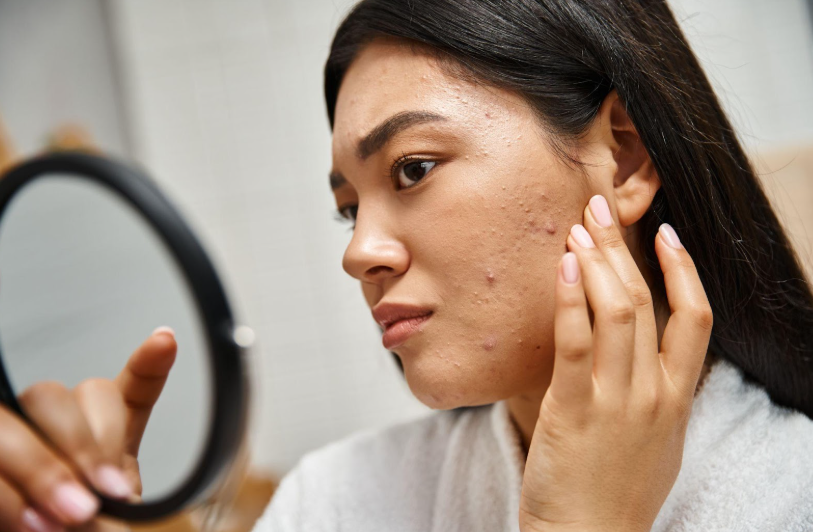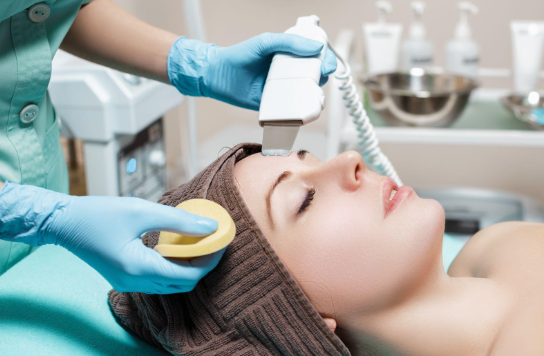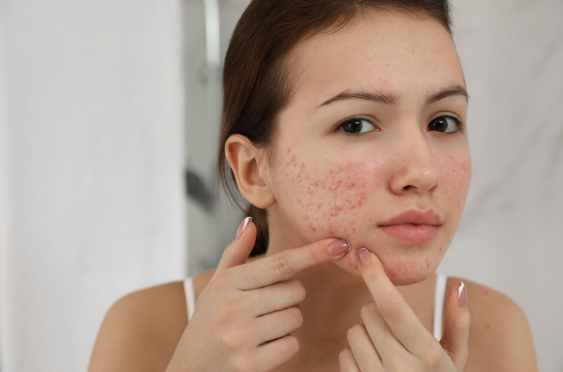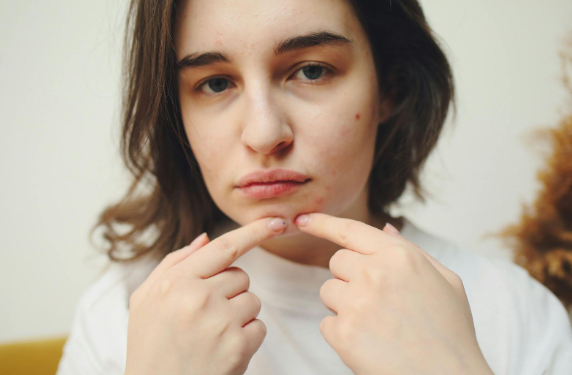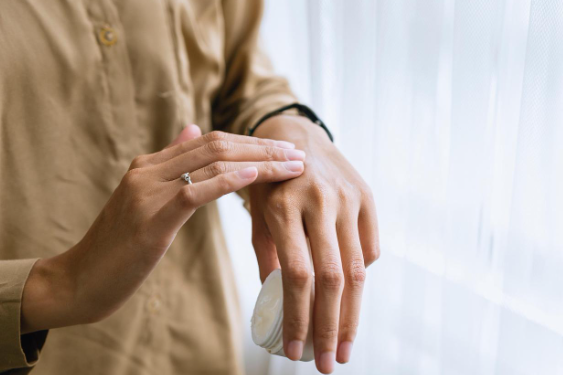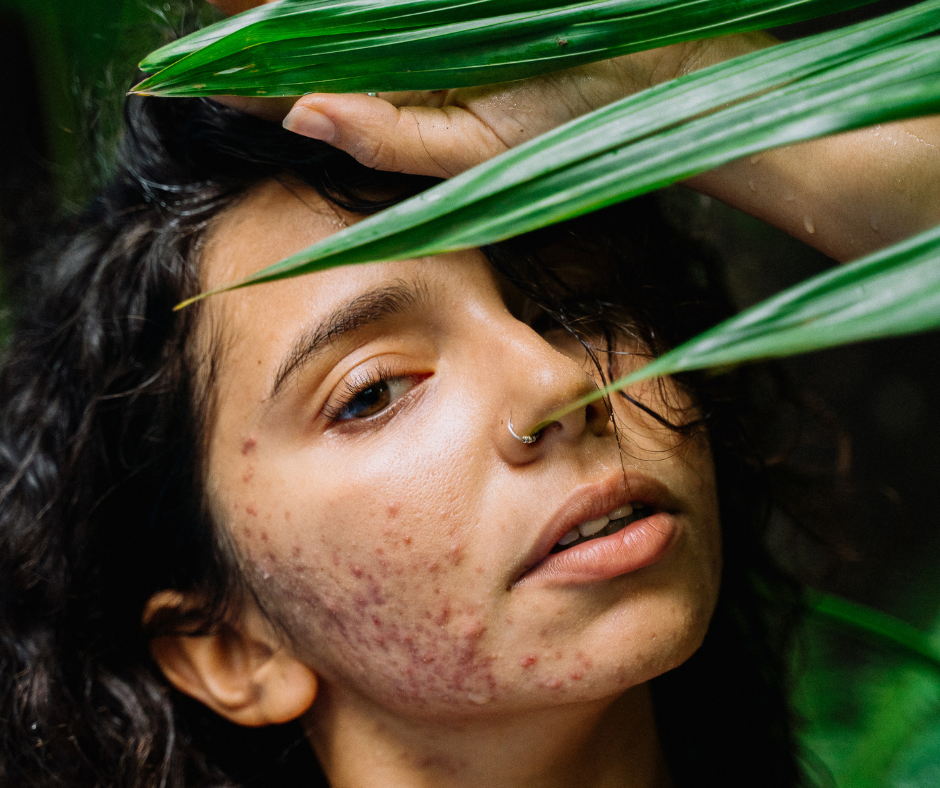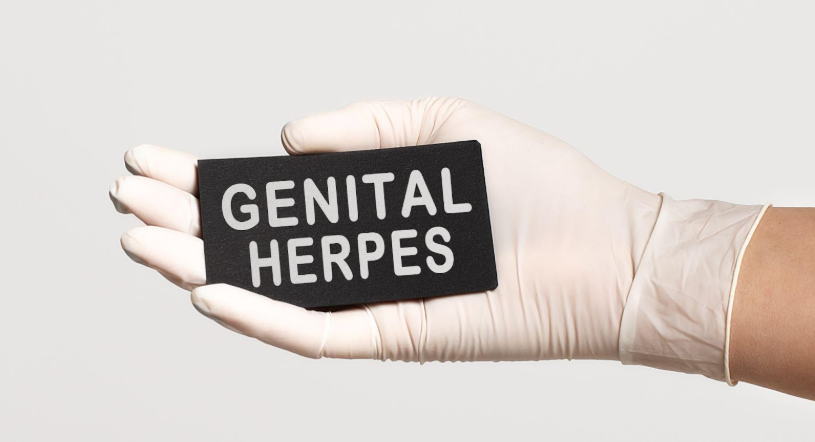Psoriasis in People of Color
Psoriasis in People of Color

According to the World Health Organization, psoriasis is a common, chronic, immune-mediated, and noncommunicable skin disease. There is no clear cause or cure for it. Moreover, at least 100 million individuals are affected by it, making it a global health concern. In this article, we will talk about psoriasis and how this skin condition affects people of color.
Psoriasis - A Brief
Psoriasis is a chronic skin condition that causes thick and crusty skin lesions in specific areas (think scalp, knees, elbows, back, and more). For those with this condition, the body makes new skin cells in days (as opposed to weeks).
Although the disease is the same in people of all colors, it presents differently in people of color. Due to lower visibility of these patches on darker skin, it is often difficult to diagnose in those with darker skin tones—where it presents as grey, ashy scaly patches—vs those with fairer skin where it presents as pink or reddish patches.
When the 'new cells' pile up on the surface of the skin. The end result is thick, scaly patches (or plaques) that can occur on any part of the body (such as knees, elbows, lower back, scalp, etc.) As per the AADA, about 80%-90% people with psoriasis get plaques. Those with plaque psoriasis present with raised patches coated with a silvery-white scale.
The Different Types of Psoriasis
Different types of psoriasis can have different appearances:
Chronic Plaque Psoriasis
- Most common condition, which causes thick and raised lesions that develop on the knees, elbows, and scalp
- Red or violet lesions occur.
- Is 1 and 10 cm in diameter and has silvery scales.
- Plaques may be of varying sizes.
Guttate Psoriasis
- More common in children/younger people who are recovering from an infection.
- Causes small and scaly bumps (less than 1 cm) to appear on the arms, back, and thighs
- Lesions are pink or salmon colored.
- Temporary in nature and clears out in a few weeks/months without treatment.
Nail Psoriasis
- Symptoms appear only on the nails.
- Appearance of tiny pinpricks on fingernails/toenails
- Nails may become brown-colored or become thick as well as crumbly.
Inverse Psoriasis
- Appears on hidden skin parts (armpits, buttocks, folds underneath the breasts, groin, etc.)
- Lesions may be purple/darker than the adjoining areas
- Leads to sore/painful skin
Psoriasis in Black People: What Data Says
Here's a quick snapshot of psoriasis-related statistics:
- Around 125 million people worldwide suffer from it (2-3% of the global population)
- Around 30% of people with psoriasis also develop psoriatic arthritis.
- Psoriasis remains underdiagnosed among African-Americans and people of color due to underrepresentation in clinical trials. It is estimated to affect 1.3% of the African-American people.
Psoriasis Symptoms
The disease can happen at any age, but it typically develops between the ages of 15 to 25. Here are a few points to note with respect to the psoriasis symptoms:
- Type: The first thing you need to remember is to learn about the type of psoriasis you have, the places where psoriasis has appeared on your body, and the amount of psoriasis you have. This information will come in handy when you visit the doctor.
- Appearance: The skin appears thickened with a scaly, silvery, and shiny crust. The skin also becomes darker in color. In some instances, psoriasis in darker-skinned people can be purple or violet, whereas it appears red for lighter-skinned people.
- Itching: The lesions are often accompanied by intense itching. If you scratch the lesion, you run the risk of the lesion bleeding and scabbing over.
- Discoloration: As psoriasis heals, you may notice areas of discoloration or darker patches of skin where psoriasis once resided. Note that these 'patches' are not scars. Thankfully, they disappear with time. As per the American Academy of Dermatology Association, the discoloration can take anywhere between 3 to 12 months to completely disappear.
- Relapsing-remitting Pattern: As is the state with many skin conditions, this disease can disappear and come back again. Simply put, you may experience no symptoms for some time and suddenly see a severe flare-up.
- Other Symptoms: In addition to the symptoms stated above, you may also experience a stinging sensation in the skin, burns, or skin that feels painful as well as tight.
Psoriasis Causes
There is no known cause of psoriasis, but it might happen due to genetic factors.
According to data, around one-third of people who have psoriasis have a relative with the same condition. Clearly, genetics plays a role in the development of psoriasis.
Diagnosing Psoriasis
To diagnose psoriasis, a dermatologist will carry out the following steps:
Step 1: They will enquire about any family history of the diseases or related conditions such as arthritis.
Step 2: They will conduct a physical examination and ask a few questions about the lesions.
Step 3: The doctor may also want you to take a skin biopsy to rule out other skin conditions.
Psoriasis in darker-skinned people is generally difficult to diagnose. This is because it may resemble other skin disorders that are more prevalent in people of color.
Psoriasis Treatment
Unfortunately, there is no cure for psoriasis. The treatment options are the same regardless of skin color. That said, you can avail yourself of a variety of treatment options to manage the associated symptoms. The following are some treatment procedures for psoriasis.
Phototherapy or Light Therapy: In this treatment style, the skin is exposed to ultraviolet light under medical guidance. As a result, the skin tends to become darker. Here's how the process works:
- Step 1: You’ll be made to stand in a light box about 2-3x a week.
- Step 2: The light from the phototherapy treatment causes the treated skin to darken. Additionally, the darker spots on your skin may become more visible. If you wish to prevent your skin from darkening, inform your dermatologist.
- Shampooing for Scalp Psoriasis: If you have psoriasis on the scalp, you may need to shampoo more frequently as it helps remove the scales. You will also need a medicated shampoo which you can use 1-2x a week. Additionally, your dermatologist may prescribe a medicine for you to apply on your scalp. If you face any side effects or issues, please inform your dermatologist immediately so that they can alter the treatment.
This is where doctors need to take into consideration the scalp care routine of African-Americans—especially those with long hair.
Apart from this, some of the most common treatment options include:
- Creams and Ointments: These are the preferred and first treatment options. Some of the most popularly used creams are steroids. The doctor may also prescribe synthetic vitamin D-3, Anthralin, and Vitamin A products to manage and control psoriasis flare-ups. Note that these are only available with a prescription. Some other over-the-counter creams for psoriasis include products containing capsaicin, aloe vera, jojoba, coal tar, etc.
- Prescription Medications: If creams and ointments don't seem to be doing their magic, your doctor may prescribe medications for psoriasis (such as Acitretin, cyclosporine, or methotrexate.) Also known as systemic medications, you may be prescribed these in different forms such as pills, injections, or liquids. That's not all. You may also be prescribed biologic drugs (such as TNF inhibitors) for moderate-to-severe psoriasis. These drugs are used to target specific parts of the immune system and are used in the injection or infusion format.
Managing Psoriasis
As mentioned earlier, there is no known cure for psoriasis. Here are some tips to remember to prevent a flare-up and manage this condition better:
- Injury: Avoid getting skin injuries (think: cuts, nicks, bug bites, and so on)
- Sun Protection: Always keep the skin protected from sunburn.
- Upkeep and Skincare Routine: Make sure to use cold compresses and moisturize your skin to get rid of the annoying itching sensation. You must speak to your dermatologist to understand the kind of psoriasis skincare routine to embrace.
- No Scratching: Do not scratch the itchy skin, and make sure to take medicines as needed.
- Learning (and Avoiding) Triggers: Understand the trigger that may be causing the flare-ups. Some of the most common triggers include stress, bug bites, certain foods, exposure to extreme summer heat or harsh cold winter weather.
- Lifestyle Changes: Ask your doctor about any lifestyle changes that you must make. Since stress can cause psoriasis, it is important to tackle stress with regular physical activity, good hydration, good sleeping habits, and more.
Final Thoughts
Psoriasis is a common skin condition that can become so intense that it may hamper your quality of life and can even lower your confidence and morale, if left untreated. In fact, in most cases, psoriasis may continue to occur for a lifelong. While there is no cure for this disease, it is possible to manage the associated symptoms and take the necessary precautions to prevent a flare-up.
If you or a loved one is psoriatic, and you are looking for personalized and quality care, get in touch with our team at Pine Belt Dermatology. From general dermatology to cosmetic procedures, we offer end-to-end skincare services. Our psoriasis specialists can offer several treatment options, including oral medications, topical creams, and laser treatment. Book an appointment to understand the best course of action for you.
